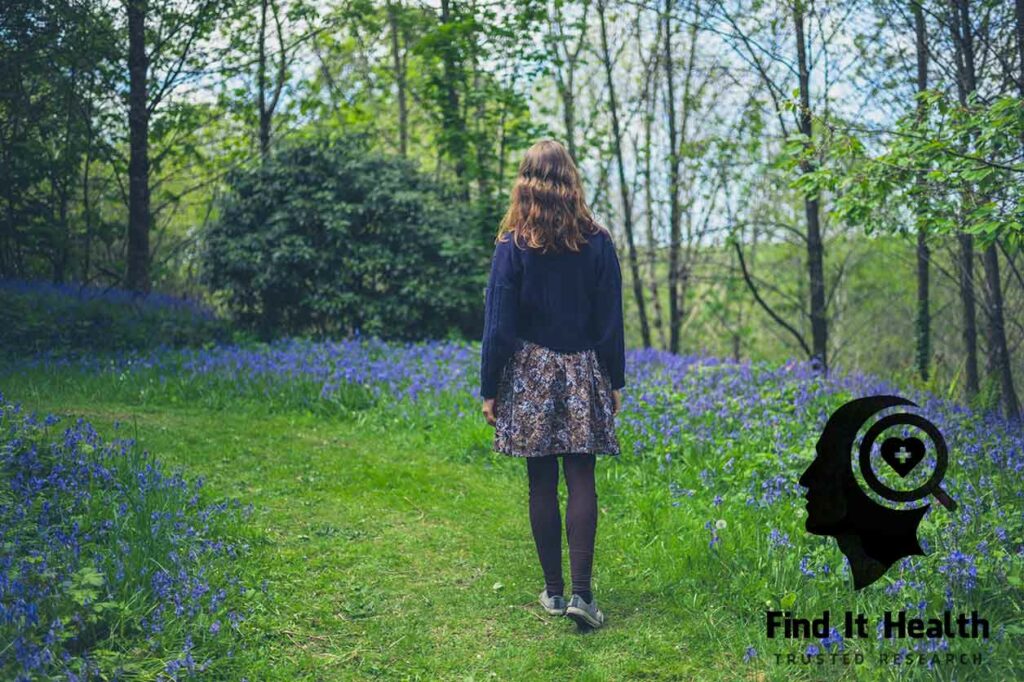
Explaining the mind-body practice known as Mindfulness and ways you can start the practice today.
The seven attitudes of Mindfulness were written by Jon Kabat-Zin, a researcher at the University of Massachusetts Medical School. Kabat-Zin developed the seven attitudes to help frame your meditation practice and to heal your physical and emotional health.
What exactly is Mindfulness? The mind-body practice of mindfulness is the practice of being aware of and accepting the present moment. Our research team at Find It Health has discovered all the key facts about mindfulness you need to know. Keep reading to discover the seven attitudes of mindfulness and how you can put them into action in your everyday life.

7 Attitudes Of Mindfulness



The seven attitudes of Mindfulness were formed as a foundation to understanding the practice. To help you find peace and implement the practice, so you live a more balanced, healthy life. The attitudes are profoundly interconnected, and by practicing one, you are building on to the next.
The 7 Principles Of Mindfulness are:
Non-judging
The world isn’t black and white, and many see judgments as just that. We view things as either good or bad without often realizing it and constantly judging others. Instead, focus on finding awareness and recognizing the judgments you automatically make so you can begin to work around them.
Also, to make you a better listener and more open to someone else’s opinion. You don’t categorize your thoughts and feelings as good or bad; try to change them or feel compelled to act on them.
Patience
Patience truly is a virtue that every one of us could work on. Your life will unfold in time and the way it is meant to be. You should live in the moment and accept it for what it is and not be rushed for the future. It’s the art of slowing down and enjoying the present moment. You will never be able to live this moment again.
Beginner’s Mind
It’s easy to become bored or lose yourself if you believe that you have seen, heard, and experienced everything. Life is ever-changing, and no moment is the same as another. By keeping a beginner’s mind, you keep your mind open and straightforward. Having your mind like this allows you to fully embrace the fullest extent of an experience and not let prior beliefs get in the way.
Trust
To find inner peace, you need to trust your beliefs, intuition, and yourself. Knowing yourself and letting your ideals guide you is the only way to ensure that you are on the right path. You should be open to learning and listening, but ultimately know that your choices should be decided on your beliefs.
Non-Striving
Non-striving is the practice of understanding that who you are is enough. You are only distracted by trying to become “different” or “better”. Stay in the present moment and embrace who you are.
Acceptance
Acceptance is learning to be content with how things are and not clouded by your biases. We do not always agree with everything and by practicing acceptance this can help you reframe your mind and embrace the situation or facts at hand. Some things are facts within our world, and you should take them as they are regardless of your personal opinions.
Letting Go
Letting go is a tricky thing to do. It’s hard to relax when we are constantly fixated on thoughts and ideas in our heads as we often live in autopilot every day. The practice of letting go means freeing yourself of worries and thoughts and focusing on the present moment. By using this way of letting go you will find inner peace.
Mindful Meditation



Mindfulness can be cultivated through mindfulness meditation using the breath as a systematic method of focusing your attention. This meditation focuses on the breath because if you get distracted by your thoughts, you can use your breath as an anchor to the present moment. This mindful meditation is best used as a mindfulness-based stress reduction.
- Sit comfortably on a cushion with your legs crossed comfortably in front of you. Rest the palms of your hands on your thighs and close your eyes.
- Bring your attention to the physical act of breathing. Feel the air moving through your mouth and the rising and falling of your belly. Sit quietly and focus on your natural breathing. Focus on 5 second long inhalations followed by 5 seconds of long exhalations.
- Allow thoughts and emotions to come and go without judgment and return to your focus on the breath.
When you’re ready, gently open your eyes. Take a moment and notice your thoughts and emotions and how your body feels in this moment. If you would like, have a meditation journal close to you to record your thoughts.
Attributes Of Mindfulness (and Benefits)

Being mindful makes you happier because it makes it easier to savor the pleasures in life as they occur. By living in the present moment, you become more engaged in activities and less likely to be stressed about the future.
Mindfulness can also improve physical health by relieving stress, lowering blood pressure, improving sleep, and reducing chronic pain. When it comes to reducing chronic pain, chronic issues, leg massages and a daily mindfulness practice can tremendously lower chronic pain.
Mindfulness can also help with sugar cravings and can be a great practice to do during the afternoon work slump.
Frequently Asked Questions on the Benefits of Relxation


What Is Mindfulness?
Mindfulness is a trait that every human being possesses. You have to learn how to access it. It is the practice of being fully present, not overwhelmed by what’s happening around you, and aware of what you are and what you are doing.
What are the fundamental principles of Mindfulness?
There are three fundamental principles of Mindfulness that provide a solid foundation to the practice.
- An attitude that is non-judgmental, curious, and kind
- Intention to cultivate awareness
- Attention to what is occurring in the present moment
What are the seven attitudes?
These attitudes are non-judging, patience, beginner’s mind, trust, non-striving, acceptance, and letting go.
What are the nine attitudes of Mindfulness?
Nine attitudinal factors constitute the significant pillars of mindfulness practice. They are non-judging, gratitude, patience, a beginner’s mind, trust, non-striving, acceptance, letting go, gratitude and generosity. These attitudes are to be cultivated consciously when you practice.
What are mindful qualities?
Being Fully Present
You live in the present moment and are not concerned about the past or future. You are aware of every moment in the present as you go through your daily routine.
Openness to Experience
You remain curious and open to any new experiences that come your way. New experiences are how we learn and get out of our comfort bubble. You also welcome with curiosity any thoughts and feelings that arise. You accept them as moment sensations and recognize they could be different in the next moment. By becoming more open to experience, you allow a greater flow of sensations, ideas, and emotions that will transform over time.
Acceptance of Things as They Are
You understand that things are as they are and that you can handle anything that comes your way. You see the truth clearly and don’t try to force or change it to fit your current vision of reality. You also do not complain about the unfairness of life and feel like a victim.
Connection
You recognize that everything is a part of a larger whole. We are all connected to all living things and nature, and it’s one giant cycle. You are grateful for this cycle and the protection and beauty this Earth gives us.
Non-Attachment
Life is in constant flow, and we are meant to have different experiences every day. By embracing the non-attachment quality, you do not try to hold onto things, people, or experiences.
Peace and Equanimity
You know that life is a cycle, and you do not get swept in life’s highs and lows. You embrace when things do not go your way and stay firm in your clear visions and values. You also celebrate the victories in life but do not get stuck in them or think this is all you have to achieve. You walk with a peaceful and light heart and adopt a no harm, kindness attitude to anyone you meet.
Compassion
Rather than judging, you open your heart to listen and understand other people and their experiences. You are kind and patient with yourself and others. You connect with other people, not with what they can give you, or because you need something from them. But to instead connect, empathize, and learn from their experiences.
Who is the father of Mindfulness?
Thich Nhat Hanh is known as the father of Mindfulness. He has written more than 100 books on the practice and hosted retreats worldwide.
Conclusion – Research by Findithealth.com


For some people, Mindfulness is primarily a way to enhance health or a tool for self-exploration. It can also deepen a spiritual path and develop insight into the human condition and freedom from suffering.
Regardless, practicing Mindfulness has essential impacts on our physical and emotional health that are worth exploring found by our research team at Find It Health.
With these concepts in mind, you can begin to introduce Mindfulness into your own life, whether by deliberately directing attention to your thoughts and senses, breathing at different times during the day, or starting a simple meditation practice.


